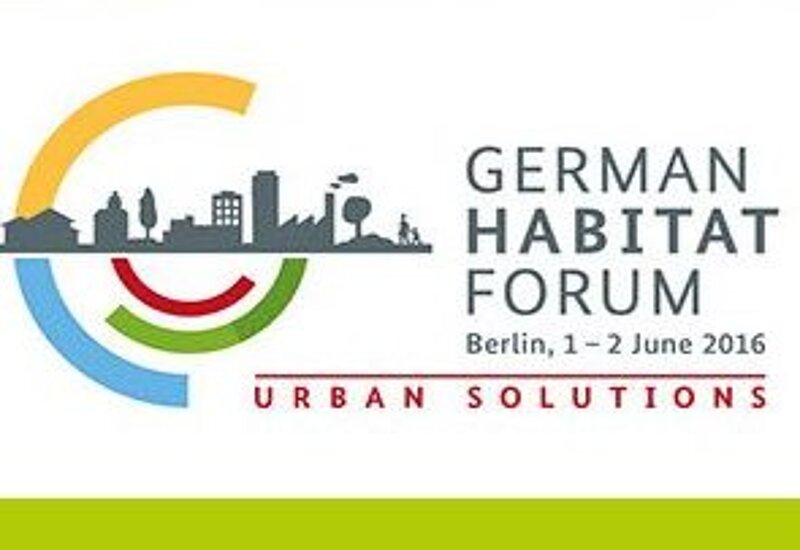- DE |
- EN
Realising Integrated Urban Development and International Networking
In a joint side event at the German Habitat Forum (Berlin, June 1-2), Connective Cities and the Service Agency Communities in One World (SKEW) have presented their new program to promote municipal development cooperation, twinning activities and global expert networking.
Connective Cities also convened a workshop on “Realising Integrated Urban Development” together with the GIZ Sector Project „Sustainable Development of Metropolitan Regions“ and the World Business Council for Sustainable Development (WBCSD). The workshop assembled German and international experts on urban development who discussed how to accomplish the integration of urban development approaches across sectors, levels of government, spaces as well as different actors.
As integrated planning instruments and cross-sectorial solutions are vital for the transformation towards sustainable and livable cities, local governments need integrated political and organizational arrangements that allow cooperation and coordination across mandates and administrative boundaries. Multi-stakeholder involvement should aim to transform the relationships between national and local governments, and between governments, the private sector and civil society.
This also holds true for sustainable development across municipal boundaries for integrating peri-urban and rural areas into urban planning. Therefore, urban land use planning should be integrated with agricultural policies, waste management and protection of watersheds in urban surroundings to improve food security at a city-region scale. Such an integrated approach enables not only the efficient use of resources and mitigation of trade-offs between different fields of action, but also helps to implement the Agenda 2030 in a more effective way by acknowledging the strong interdependencies between the Sustainable Development Goals (SDGs).
Integrated approaches range from applying an urban nexus perspective for cross-sectorial solutions for greater water, energy and food security in urban development, through participatory budgeting for increased decision power in communities to interdisciplinary capacity building formats and cross-municipal monitoring systems. Cities around the world demonstrate with good practices how such instruments, policies and incentives can be applied successfully and serve as a valuable reference for implementing the New Urban Agenda.
Key messages of the workshop comprised:
- The New Urban Agenda should aspire to achieve a change of mindset, creating a common culture of integrated thinking and planning, and provide common understanding of the concept.
- Integrated Urban development requires legal, political and institutional frameworks that allow for and actively incentivize collaboration across sectors and administrative boundaries, and enable mutual learning.
- All stakeholder, including business actors, need to engage in all parts of the planning process, creating a common vision, to achieve integrated urban development. The New Urban Agenda needs to provide means of engagement and define new forms of partnership.
As an input for the ongoing discussions on the New Urban Agenda the German Habitat Forum adopted the <link http: www.german-habitat-forum.de assets berlin_recommendations.pdf external-link-new-window external link in new>
Berlin Recommendations for the Cities of Tomorrow !


